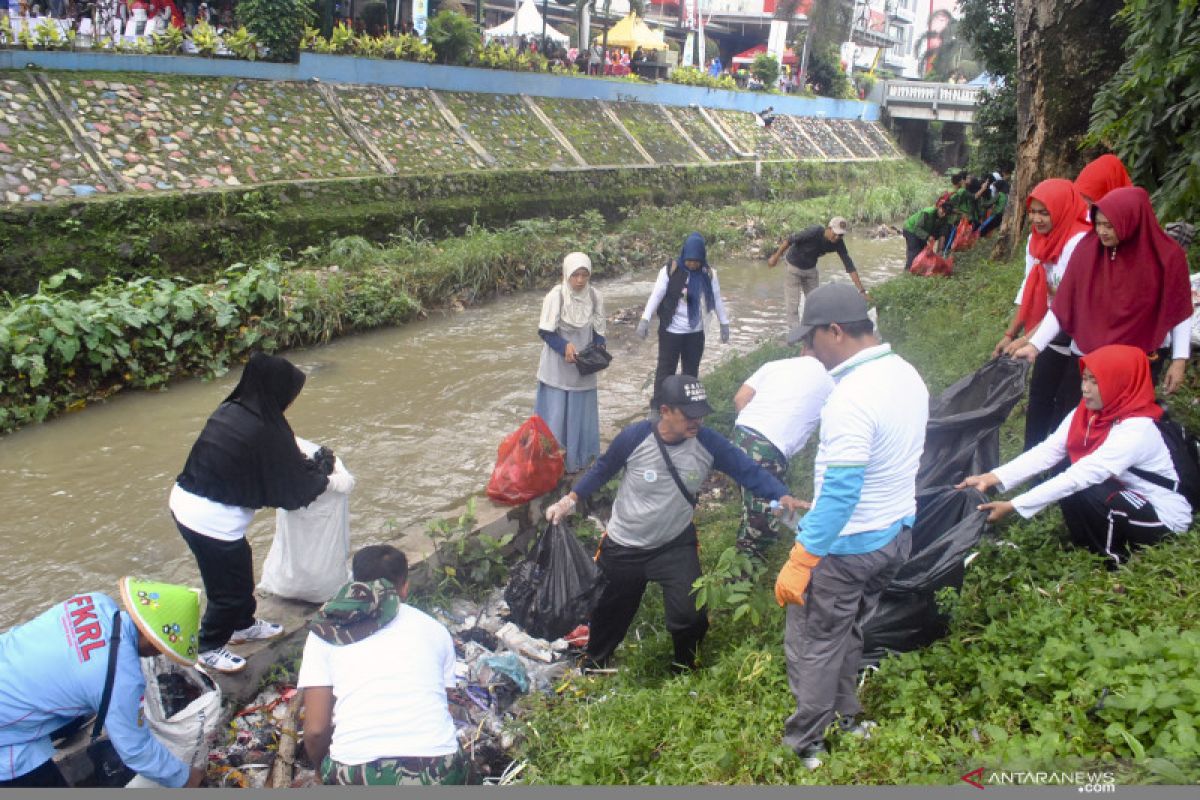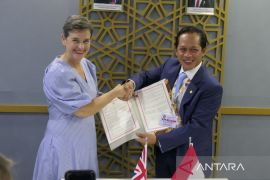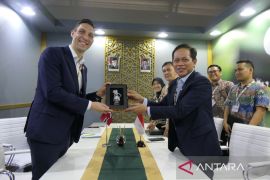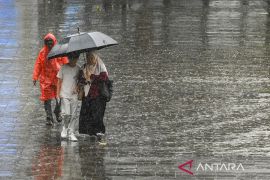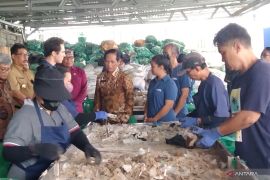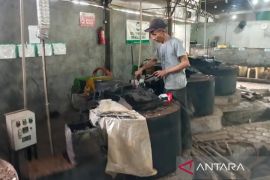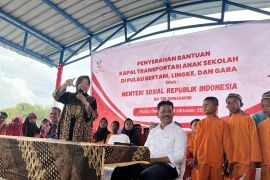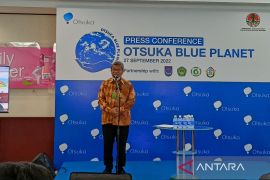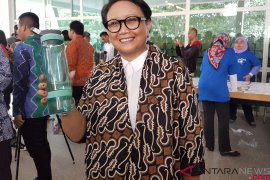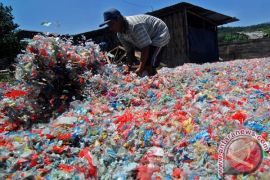As claimed by this organization`s secretary general, Helmy Faishal Zaini, NU has some 120 million members across Indonesia (Kompas, 2016), so its support for reducing plastic waste is so meaningful for the country`s trash hero and environmental movements.
NU`s support has also been stipulated in one of the recommendations produced during its National Meeting of Ulemas and Conference held in Banjar Patroman City, Central Java Province, last week.
Indonesian Vice President Jusuf Kalla, who officially concluded this NU event on Mar 1, lauded the recommendation, highlighting the importance of reducing plastic waste for environmental conservation and preservation.
To this end, Kalla urged the conference`s participants to stop using plastic containers and bottles designed for one-time use. Instead, they were encouraged to use glass cups and glass coffee mugs since they could be reused.
"Hence, to resolve this problem of plastic waste, please return to using glass bottles or others that can be washed again and again. When you go out for coffee, please ask for a glass cup," he stressed.
Kalla conveyed this suggestion by considering the fact that Indonesia, with a total population of some 260 million people, is currently the second-biggest contributor to the world`s plastic waste after China.
The fact that coffee enthusiasts have always been given plastic cups instead of glass mugs only adds to the volume of plastic waste in Indonesia, Kalla pointed out.
Plastic waste has, since decades, undoubtedly become a major problem in Indonesia amid the government`s serious endeavor to deal with the menace by highlighting its detrimental impacts on the country`s environmental sustainability.
Plastic waste, which has a serious impact on the quality of soil and water and may threaten the existence of living creatures, is closely related to the amount of the trash produced and used by Indonesians every day.
Environment and Forestry Minister Siti Nurbaya noted that some 9.8 billion plastic bags are used in Indonesia every year, and almost 95 percent of them will end up as waste.
The ministry`s waste management directorate also estimated that the total number of plastic straws used by Indonesians every day reaches some 93 million, increasing from nine percent in 1995 to 16 percent this year.
To address this problem, the Indonesian Government has formulated a national action plan, which has five main pillars: behavior change; suppress land-based pollution; suppress sea-based pollution; suppress plastic production and use; and improve financing mechanisms, policy reform, and law enforcement.
However, bringing about behavioral changes, for instance, still poses a serious challenge, as one can easily spot many Indonesians discarding their trash without a sense of guilt wherever they stay and go.
In dealing with this problem, both the government and communities initiate valuable action programs, such as cleanup events, trash hero movements, and public awareness campaigns.
On Feb 22, the local government and community members in Wakatobi District, Southeast Sulawesi Province, for instance, had commemorated National Waste Care Day by picking up some 50 tons of marine debris.
According to Head of Wakatobi District`s Environment Office Jemuna, the marine debris was collected from various coastal areas in the marine national park of Wakatobi, including the sub-districts of Kaledupa, Tomia, and Binongko.
The movement for cleaning up Wakatobi in commemoration of this year`s National Waste Care Day was deemed compulsory, and it engaged the local government officials, police and military personnel, as well as housewives and students.
In Wangi-Wangi Island, the local residents, including housewives, were able to collect 25 to 30 tons of plastic waste, while in the sub-districts of Kaledupa, Tomia, and Binongko, the community members could collect 20 to 25 tons of trash, he remarked.
The same movement was also conducted by those in Sukabumi District, West Java Province, this week.
More than a hundred volunteers took part in a cleanup event around Mount Salak area, which is an integrated part of the Mount Halimun Salak National Park. This action resulted in the collection of 515.5 kilograms of trash.
Located in Kabandungan Sub-district, the Mount Halimun Salak National Park is not just popular among mountaineers, but it is also well-known among families keen on enjoying its fun tracks.
The cleanup event, which was the peak of this year`s commemoration of National Waste Care Day, was conducted in several areas of Mount Salak, including the climbing tracks and tourist sites, Head of the national park Awen Supranata noted.
The participating mountaineers and community members, who care for environmental conservation and preservation, found various forms of waste, such as plastic bags, food wrappers, plastic bottles, and cigarette butts, at almost every point of the climbing tracks.
Through this cleanup event, visitors and mountaineers were reminded of the importance of being cautious regarding the dangers of littering while visiting the Mount Halimun Salak National Park areas, as plastic waste does not easily decompose in soil, Supranata explained.
"Visitors must not litter the park. Instead, they must take part in keeping the areas clean. Do not let this mountain`s areas be polluted by the trash the visitors bring," he emphasized.
In response to the cleanup event around the Mount Salak areas, Aulia Salsabila, a university student who got involved in this activity, expressed deep concern over the finding of a lot of plastic waste along the climbing tracks.
To preserve the ecosystem and natural beauty of Mount Salak, visitors should be aware of the dangers of littering. Hence, she urged all visitors to Mount Salak to contribute to its environmental preservation and conservation.
"Please, do not just enjoy its natural beauty but take part in keeping its areas clean. If you climb the mountain, do not litter it. Instead, please pick up the trash you find and put it in prepared trash bins," she advised.
Indonesia is in dire need of more number of trash heroes in all parts of its territory to create a beautiful, healthy, and clean home for all.
Reporter: Rahmad Nasution
Editor: Fardah Assegaf
Copyright © ANTARA 2019
